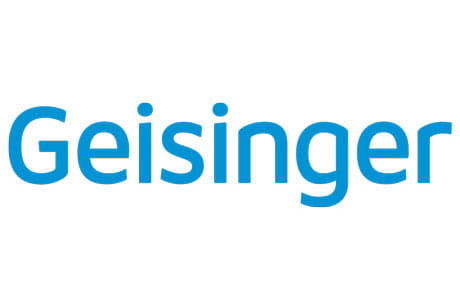Geisinger hospitals receive American Heart Association accreditation for heart-attack care
DANVILLE, Pa. – Three Geisinger hospitals have received accreditation by the American Heart Association as Mission: Lifeline® Heart Attack Receiving Centers.
Geisinger Community Medical Center in Scranton, Geisinger Medical Center in Danville, and Geisinger Wyoming Valley Medical Center in Wilkes-Barre received the accreditation, which distinguishes centers that meet or exceed quality of care measures for people experiencing the most severe type of heart attack, ST-elevation myocardial infarction (STEMI), during which blood flow is completely blocked to a portion of the heart. The accreditation identifies healthcare facilities that meet specific criteria for lifesaving heart attack treatments that restore blood flow.
The accreditation is renewed Geisinger Wyoming Valley, Geisinger Community Medical Center and Geisinger Medical Center.
The hospitals were reviewed by accreditation specialists from the American Heart Association and demonstrated exceptional quality of care in key areas, including:
- Expertise, facilities and equipment to perform percutaneous coronary intervention (PCI), where stents are inserted through a catheter to open narrowed or blocked vessels (coronary arteries) that supply blood to the heart.
- PCI readiness on a 24/7 basis with PCI physicians always within 30 minutes of the hospital.
- Coordination with emergency medical services (EMS) and referring centers (non-PCI facilities) to prepare for immediate treatment when STEMI patients arrive.
- A multidisciplinary team including physicians, nurses, EMTs, and specialists in quality improvement, the cardiac catheterization lab, and the coronary care unit, which meets regularly to continuously improve care.
As a result, the hospitals will display the American Heart Association Mission: Lifeline Heart Attack Receiving Center Accreditation certification mark.
“Geisinger has always been committed to providing patients in our communities with the highest quality cardiac care,” said Mark M. Bernardi, D.O., medical director of Interventional Cardiology Services for Geisinger’s northeast region. “The American Heart Association’s Mission: Lifeline Heart Attack Receiving Center Accreditation is national recognition that we continue to provide world-class, evidence-based care to every heart attack patient who comes to us.”
The American Heart Association’s overall goal for Mission: Lifeline Heart Attack Receiving Center Accreditation is to significantly reduce cardiac death in patients by teaching the public to recognize and react to early symptoms of a heart attack, reduce the time it takes to receive lifesaving treatment, and increase the accuracy and effectiveness of treatment administered. Geisinger’s STEMI program, which was started to achieve these same goals, predates The Association’s Mission: Lifeline program and has earned this recognition regularly since the program launched.
For more information on the American Heart Association Mission: Lifeline Heart Attack Receiving Center Accreditation, visit heart.org/missionlifeline or heart.org/accreditation.
About the American Heart Association’s Mission: Lifeline
Each year, hundreds of thousands of Americans have a type of heart attack known as ST-elevation myocardial infarction (STEMI), in which blood flow is completely blocked to a portion of the heart. Unless the blockage is eliminated quickly, the patient’s health and life are at serious risk. The American Heart Association launched Mission: Lifeline in 2007 to improve systems of care for patients suffering from STEMI by eliminating the obstacles that keep patients from accessing and receiving appropriate treatment.
Mission: Lifeline brings together healthcare resources into an efficient, synergic system to improve overall quality of care based on the latest scientific evidence and guidelines. It addresses the entire continuum of care for STEMI patients while preserving a role for the local hospital. While there is no “one-size-fits all” solution to efficiently treat STEMI patients, Mission: Lifeline develops protocols specific to the rural or urban area and provides recommendations for community level implementation of STEMI systems of care. The Mission: Lifeline ideal STEMI system of care is that all parties with a vested interest treating STEMI patients — from EMS providers to cardiologists, from hospital administrators to policymakers and from third-party payers to the public — share a common belief that quality and timely patient care is the top priority. There is a mutual respect for the critical role of each player in the STEMI system. Individual parties are not out to promote their self-serving interests. Rather, everyone works together to build a consensus on the ideal STEMI system for their region, considering its unique challenges. For more information about Mission: Lifeline, visit www.heart.org/missionlifeline.
About Geisinger
Geisinger is among the nation’s leading providers of value-based care, serving 1.2 million people in urban and rural communities across Pennsylvania. Founded in 1915 by philanthropist Abigail Geisinger, the non-profit system generates $10 billion in annual revenues across 134 care sites - including 10 hospital campuses, and Geisinger Health Plan, with 600,000 members in commercial and government plans. The Geisinger College of Health Sciences educates more than 5,000 medical professionals annually and conducts more than 1,400 clinical research studies. With 26,000 employees, including 1,600 employed physicians, Geisinger is among Pennsylvania’s largest employers with an estimated economic impact of $14 billion to the state’s economy. On March 31, 2024, Geisinger became the first member of Risant Health, a new nonprofit charitable organization created to expand and accelerate value-based care across the country. Learn more at geisinger.org or connect with us on Facebook, Instagram, LinkedIn and X.

